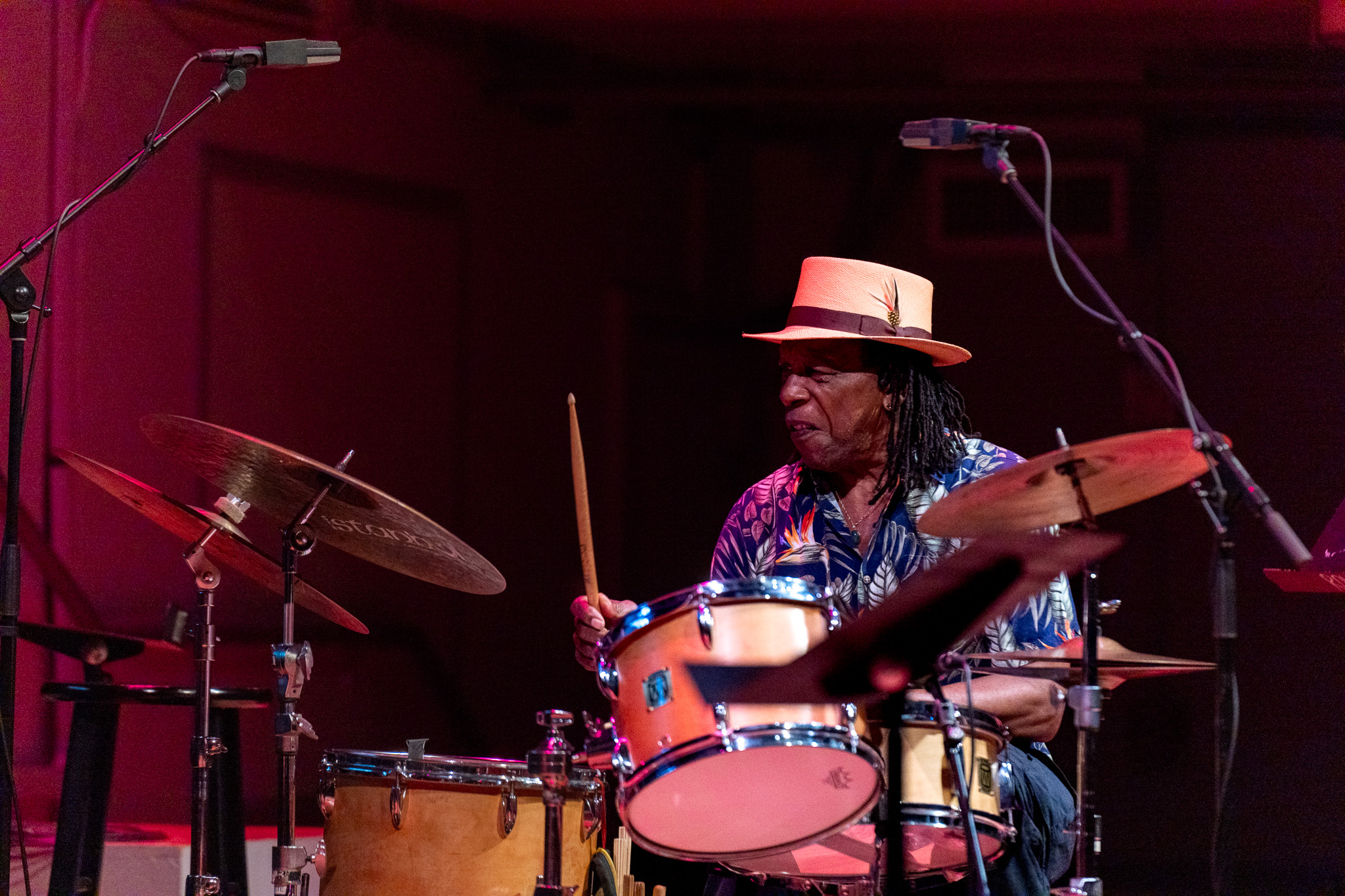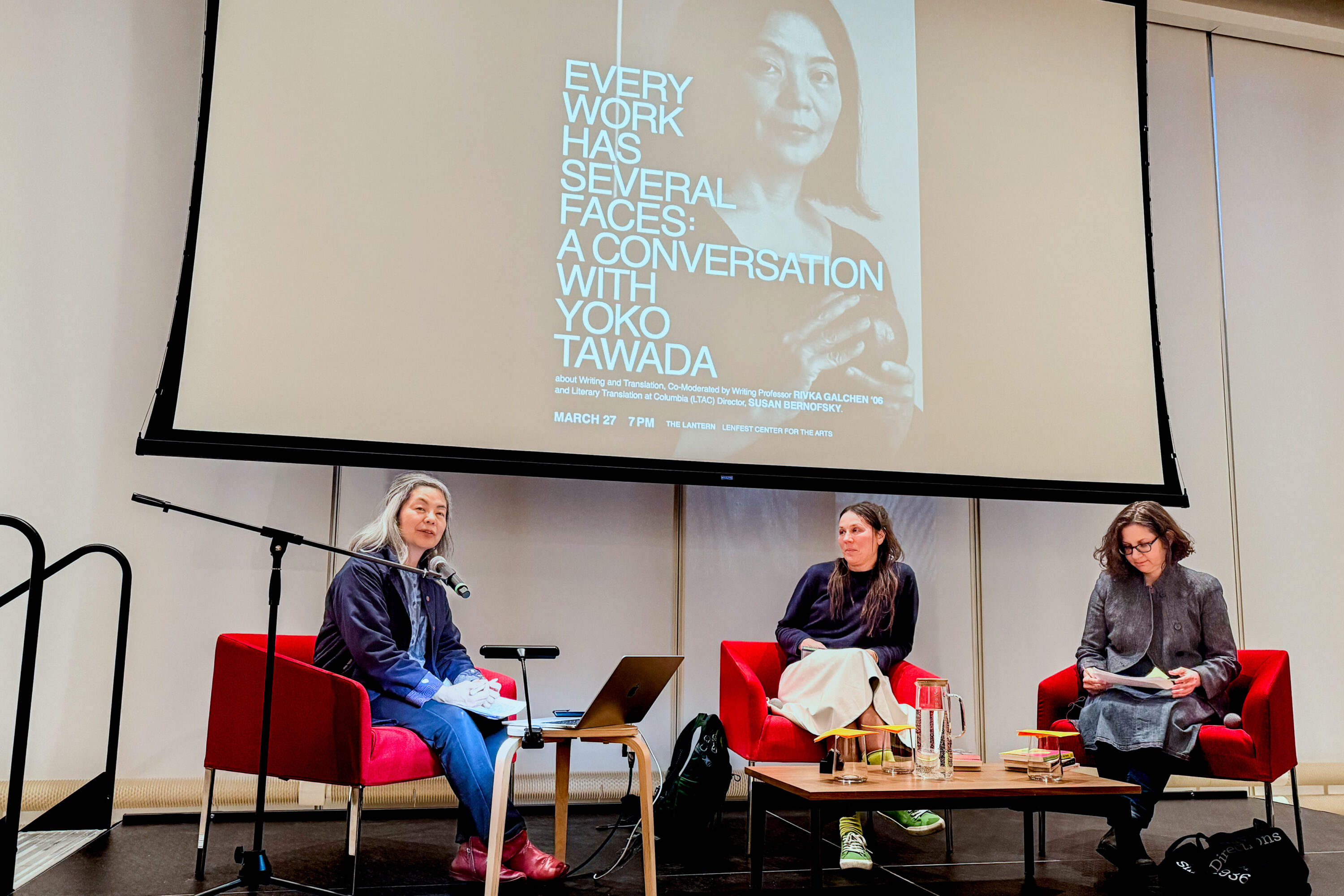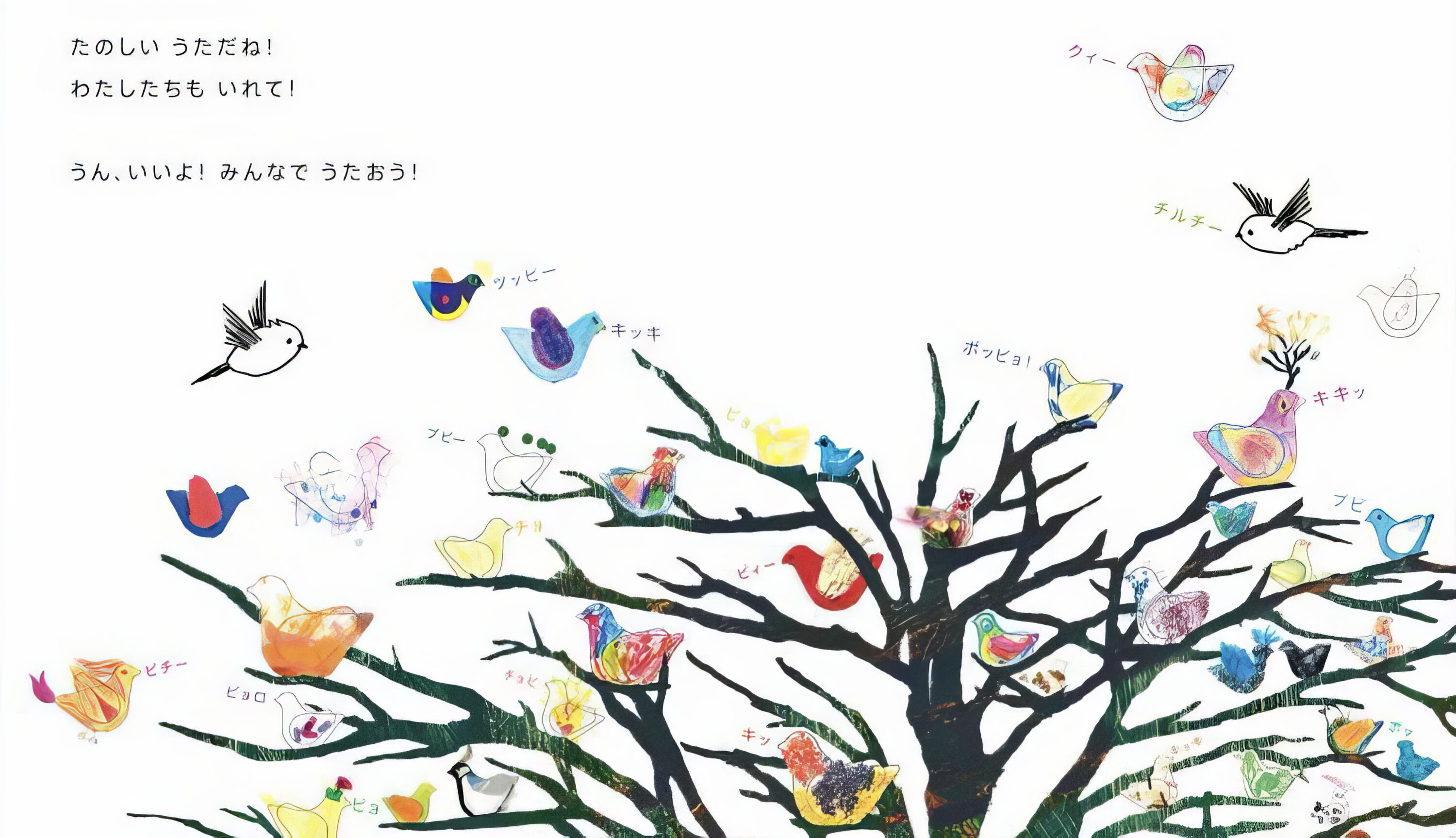This post is also available in:
English (英語)
New York: They were not born that way
by Hai Yen Ho| October 13, 2025 | Literature
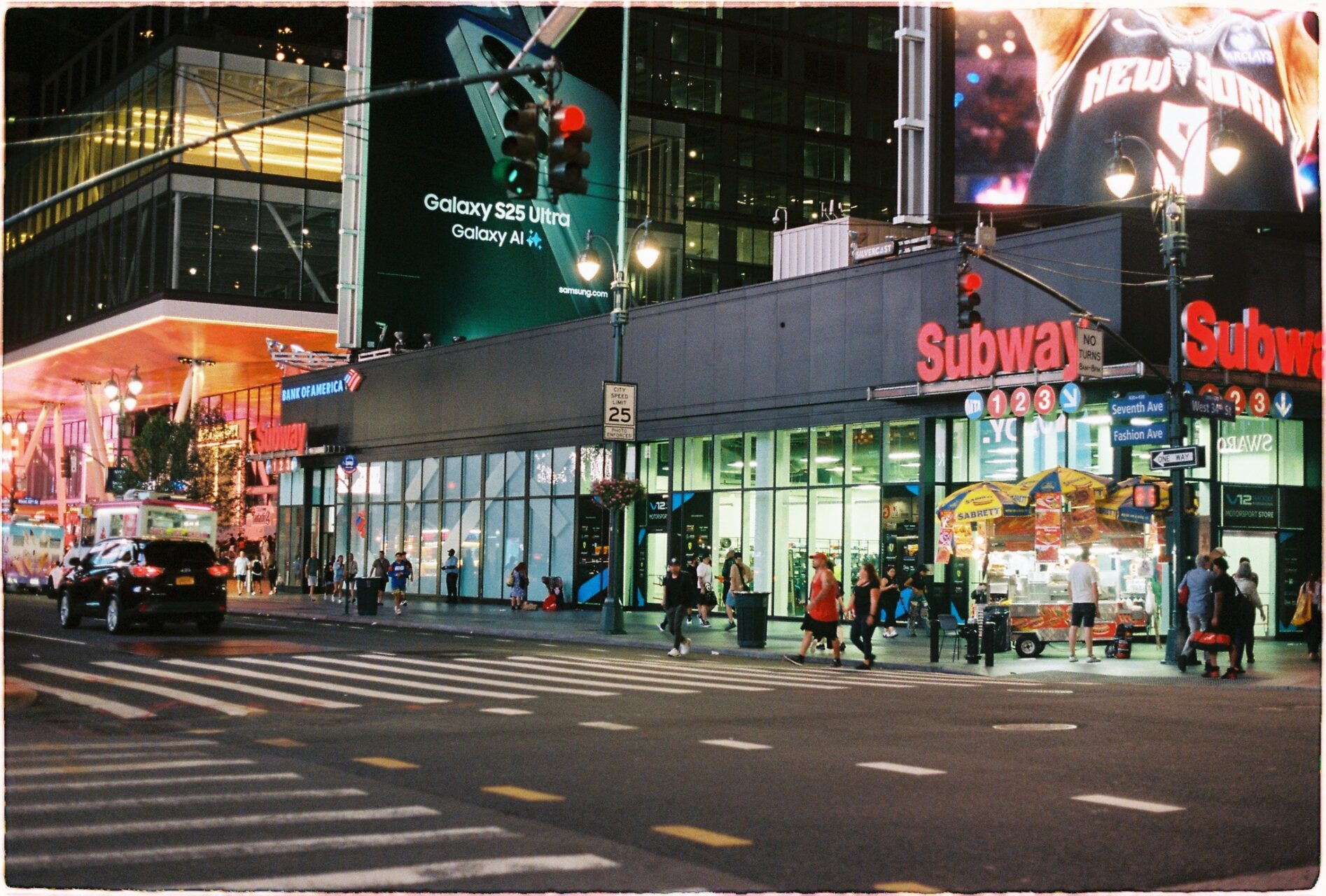 Photo © by Hai Yen Ho
Photo © by Hai Yen HoThe world is full of people who leave the place they were born, only to survive and then die in a place they never expected to live. The world is full of people who live without purpose, without any relationships, without any stories, or many that no one cares to know, despite the constant progress of everything around them. Such people tend to appear the most often in America, and even more in New York, the place where the no-identity-faces gather, the embodiment of the splendid America, the image that represents the most solid but also the most easily shattered dreams.
I saw one of them on the first morning after arriving in New York, right after stepping out of a concrete hotel on Twenty-fourth Street, heading towards Seventh Avenue. He stood out with his messy, burnt-black hair, his black African skin, and his tall, lean gait like a professional runner who can leisurely stride even at a pace of three. It was only 6:30 am. The sky was bright, but everything was barely awake. The sunlight sprinkled a few pale-yellow threads on the roofs of the big buildings, strung across the middle of the avenue, then settled on his pitch-black skin with his bulging eyes, highlighting the veins on his face. He stared at my tote bag, the camera I was carelessly carrying, making me feel a little worried, but then he quickly looked away, the corners of his mouth curling up into a few meaningless mumbles, his hands waving in an incomprehensible dance.
From the red door of a not-yet-open pizza restaurant, he walked awkwardly forward, crossing the street without waiting for the white pedestrian signal. From a distance, a few car drivers saw him and stopped, patiently waited for him to cross the road. It was hard to blame them — in most cases like this, avoiding confrontation was the wisest decision.
For a moment, I had the idea of doing something different from the drivers — that is, following the African man to his destination. As I ran towards him across the avenue, I glanced at the other pedestrians. They were still busy with their own rhythms of life, with phones in their hands, headphones in their ears, and bags on their shoulders. They were engrossed in a missed call, focusing on a few text messages, staring at the roadside shops, or silently watching their step. No one bothered to glance at the African with his messy hair and slovenly demeanor. They — the New Yorkers — are probably used to seeing homeless people and are experienced enough not to let themselves get into any trouble, especially when a new working day had just begun. But I’m not like them. I haven’t had the chance to see many homeless people with unique personalities, and besides, I didn’t have any urgent work to do that day. No deadline, no office, no boss, colleagues, partners, customers, or anything like that. I just needed to find a target to pursue, and that morning on Seventh Avenue, this guy was my target.
Immediately after crossing the intersection, the guy walked in the opposite direction of Times Square, heading towards Soho. From his point of view, the avenue was wide and straight, neatly arranged in a grid with smaller streets with descending numbers. From a distance, it all looked like a regular mesh, dotted with fast food, pizza restaurants, grocery stores, fashion boutiques, offices, and skyscrapers. It all moved according to an invisible order, a rotation drawing people from every direction—one person’s labor flowing into goods for another, the value of those goods turning, in turn, into benefits for someone else. It was hard to find a loophole inside that giant machine. Only we — an African guy and an Asian girl following him — decided to step out of the system that day to look at everything from the outside like two people living on the margins of society.
Now that I had more time to follow him, I took a closer look at what made him. Draped over his lean frame was a thick orange batwing, a few threads already coming loose on the shoulders part, which he would probably have to take off soon as the sun rose and the heat reached its peak. Below were faded jeans, some of which were unintentionally frayed like fashion items. And the strangest thing, but also the most easily identifying him as a homeless man, were his bare feet, touching the pavement below. Thin feet, with purple veins undulating with each step, and the soles turn black with the grime that had accumulated over time. His black hair was disheveled, matted in places, and in other places, streaked with what might have been leaves and chewing gum. His black neck was wrinkled, the skin on the back of the neck dries out and peels off in pale, silvery white streaks, perhaps the result of days wandering the streets without rest. And on the hands, the hands that were splayed more than necessary around the thin body, was a pink mark on the left forearm. I took two steps closer to get a better look at the pink skin — perhaps a burn, or a wound that was just starting to heal. Either way, it was a mark of a hard life, the price he had to pay for living on the streets, wandering in a big city. I could tell this was not the first time this pink mark had appeared.
I remembered the days when I was working as a reporter for an international news site, when the peak of immigration from the Middle East was flooding Europe because of political upheaval. Surrounded by countless disasters in their daily lives, hundreds of thousands of them had accepted the highest level of risk to cross the Sahara desert, lie flat in cramped containers on overloaded trucks to Romania, or wobble on fragile rafts across the Mediterranean Sea. They agreed to undertake a journey where the survival rate is only 50%, just to set foot in a land that offers more hope. Their eerie silence, their patient and enduring eyes, their tragic deaths, all haunted me for a long time. It is a migration which, once begun, allows no possibility of return, where the future — however fierce — still holds more promise than the life left behind.
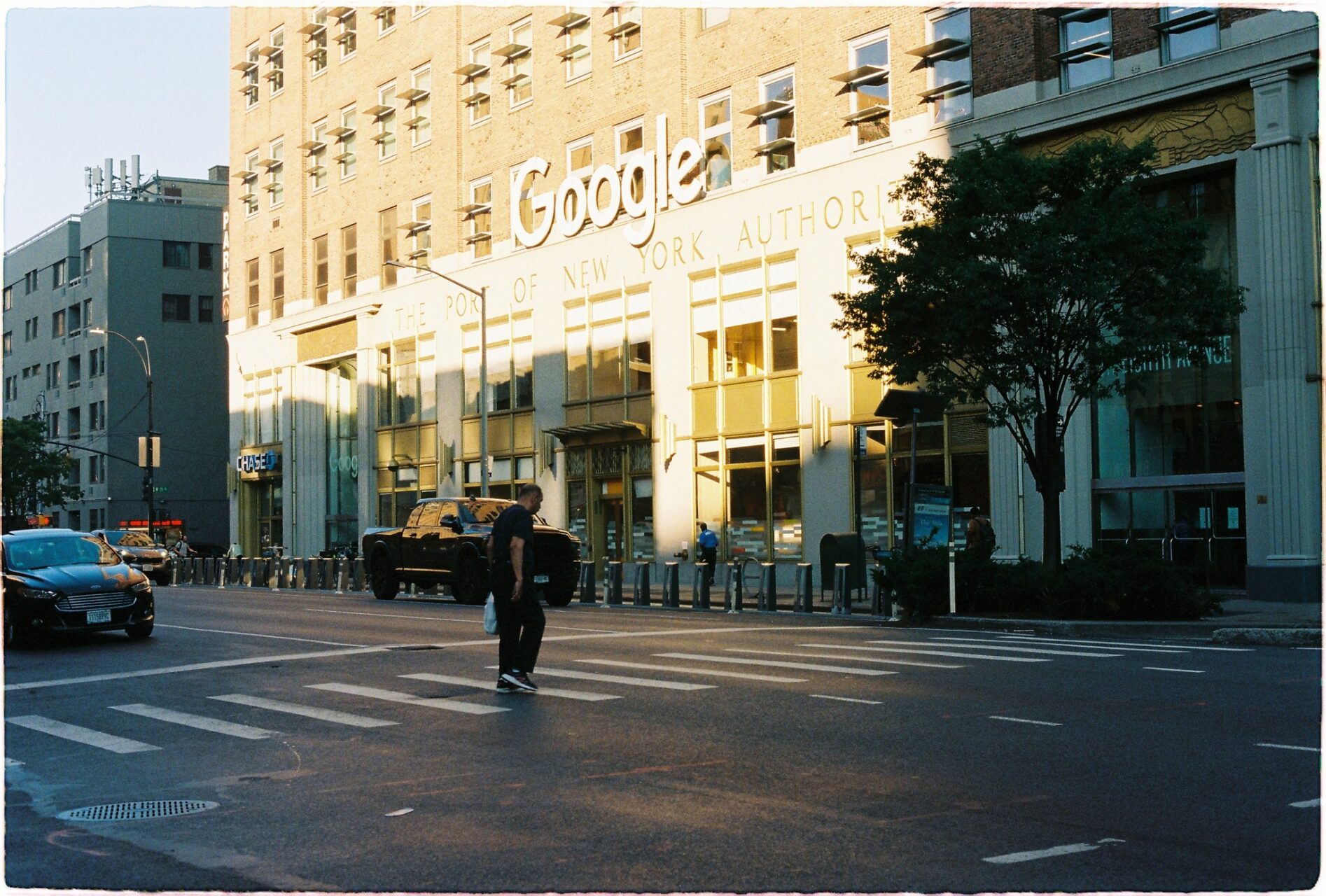 Photo © by Hai Yen Ho
Photo © by Hai Yen HoIn the new land, they accepted being ignored but gently or madly stared at anyone who looked at them as exotic ornaments. They knew that whatever happened, each morning would soon be over and then the afternoon, the evening, and another anonymous day would be casually put aside. Life on the street was different from life in ahome, where soft beds and hot meals awaited, where no one would suddenly appear and take over where one was sitting, lying, eating, or sleeping; where the comfort of a day depended entirely on the (inherently uncertain and unpredictable) kindness of strangers, and sometimes what awaited them at the end of the day was something that had not been planned for that morning. The waiting, sometimes in silent helplessness, was hidden in the restlessness of the present moment.
I don’t know much about them, but I know that I will always think of them as people who live an unwanted wandering life, sadly seeking the faint stability of a life that is unlikely to materialize. If I could see into the past, I would look at this man I had been following as he once was many years ago. He would appear very different from how he looks now — after all, no one is born this way. The image of him here is a reflection of his present circumstances and his past choices and experiences, but it does not reflect what he had before: he could have had an African mother who, although not providing him with the best living conditions, loved him unconditionally. He could have had friends of the same age, although not having access to optimal amenities, still enjoyed a peaceful childhood together. He could have fallen in love — why not? He might have gotten married, had children. He might have been one of the few survivors of a plague that swept through his village in South Africa. He might have survived a political purge in the heart of North Africa. He might have fallen victim to the barbaric human trafficking that originated in East Africa. He might have been born here and simply fallen victim to circumstances or mental illness. But now here he is, wandering the streets with no future and cut off from his past, anonymous. Who knows what has happened to him to bring him to this point? Who is caring about people in his situation?
What people care about are just a few dry numbers on the reports: “In fiscal year 2024, the United States accepted 100,034 refugees, a significant increase from 60,014 in 2023. The Biden administration has set a target of accepting 125,000 people for fiscal year 2025. According to the International Rescue Committee, refugees and asylum cases have historically been a net financial benefit to the United States, contributing significantly more in tax revenue than the government costs to support them. Factors that will influence the number of refugees in the United States over the next decade include global migration, U.S. immigration policy, and economic conditions.” That’s it. American society does not seem to prioritize caring for the homeless and mentally ill. Really, who among us can say we are sympathetic enough to care about every unfortunate life we encounter on the road?
 Photo © by Hai Yen Ho
Photo © by Hai Yen HoIf there is one great thing about America or developed countries in general, it is that anybody born a citizen of the country obviously has many choices, even if they are poor, homeless, or born with a disability. America, with its countless public utilities and social welfare, automatically put its citizens on a higher rung on the ladder of survival. Even if America does not provide the optimal life they desire, they always have the right to build a legal life without encountering as much difficulty as they might find in many other countries.
I remember what my family told me about their personal experiences as immigrants. Those were my uncles, aunts, or cousins, who left Vietnam as soon as they could to escape the political turmoil following the war. At that time, if you spoke with any Vietnamese immigrant living in the United States, you would find that they either earned a demanding university degree, attained a high military rank, built a fortune in business, or practiced respected professional professions in medicine, teaching, engineering, or writing. Now, they live here, doing ordinary manual labor jobs that do not require qualifications: serving in a pho restaurant, cooking in a Chinese restaurant, cleaning toilets, or taking care of children. Their past, their assets, their achievements, their knowledge, their old luxurious life,… all returned to zero when they came to the United States and were forced to start over, with a starting point that was certainly much lower than that of an American citizen. They had not been born into working-class families, either, and had possibly never even paid attention to them.
—
As our four feet began to be surrounded by more and more feet appearing from everywhere — exiting the subway, the restaurants, the big buildings — the sunlight, the warm, cheerful sunlight, began to grow brighter and more sparkling, the shops also. The air smelled of marijuana and grass; here and there, a wisp of steam rose from the vents on the street, mingling with the rumbling of the trains below and the smell of expensive perfume. The sound of street lights, laughter, e-bikes idling, phones buzzing, motors revving, the blare of a large speaker — I breathed in the bustling air, savoring the excitement of this land before once again merging back into the flow.
That was New York as I had imagined before arriving here — not exactly the beautiful place where dreams come true, but a chaotic place with reformist illusionists of Margaret Mitchell; a prosperous place filled with lies and unspoken truths of Scott Fitzerrald; a gathering place of vulgar boasting and formal social habits that do no harm but bring no value to anyone but Woody Allen; a place where poverty coexists with wealth, the lower class befriends the upper class of Charlie Chaplin; a maze of strange and confusing stories with human identities appearing in endless loops of Paul Auster…. New York for me is a warehouse of films, books, and documents, informative and emotional, that I have been devouring since childhood; it’s the street lights in the cold dark night, the clanging of buses passing, the traffic jams in the pouring rain at rush hour, and the overwhelming view behind the glass of the high-rise buildings. I belong to none of these, but perhaps that is why the city appears veiled in solemnity, a veil that I can lift to glimpse its eras, its histories, and its many human perspectives. After all, I am just a pedestrian who so far has only had direct contact with a few people here, with some dishes from America, Italy, China, India, the Middle East, with the subway, the famous yellow taxis, the parks, museums, libraries,… what any tourist can approach. The real lives of the people here remain unknown to me.
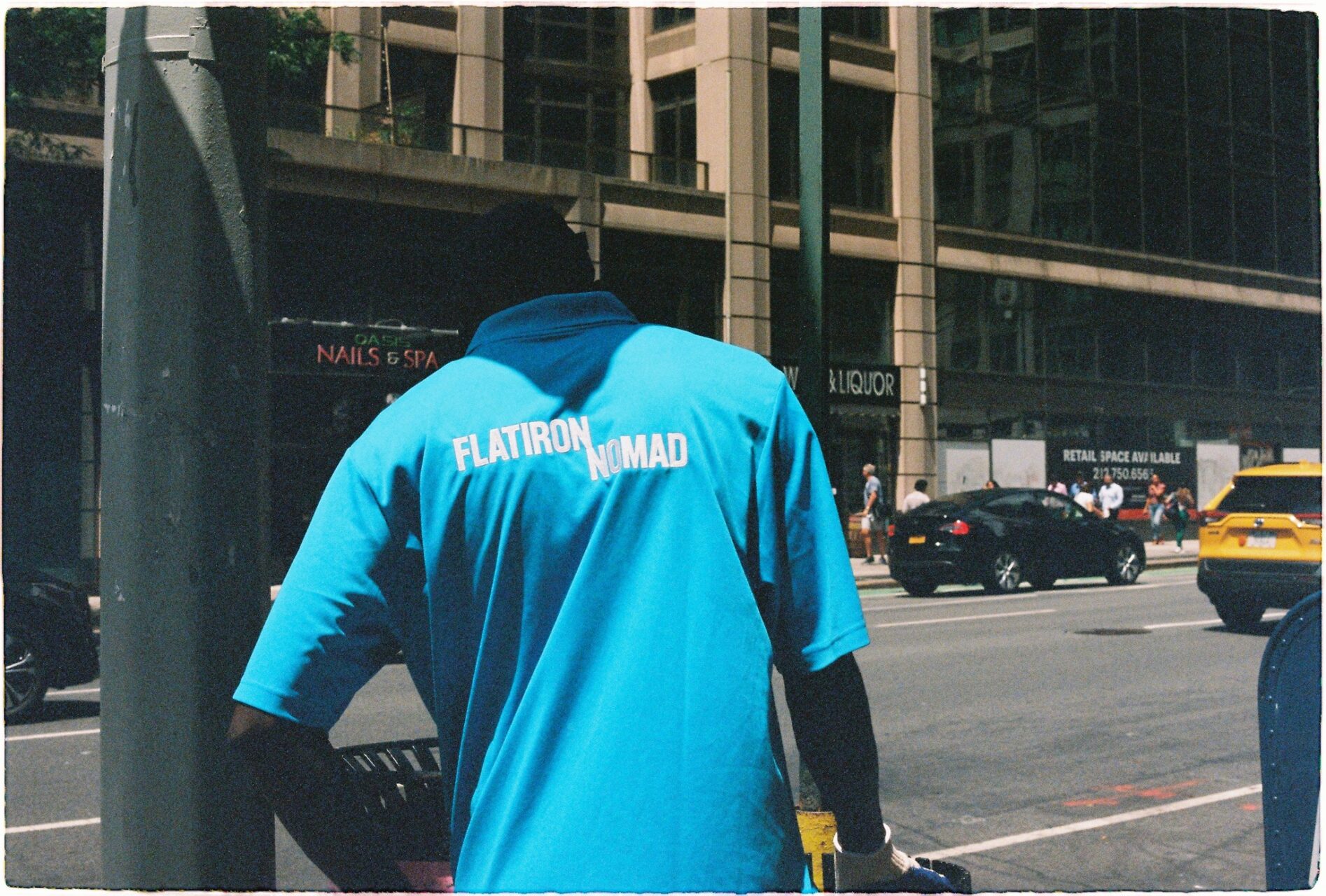 Photo © by Hai Yen Ho
Photo © by Hai Yen HoThat day started out windy and cold for July, only 18°, before the sun rose, only for the weather to grow harsher, reaching its peak around noon. It was a strange kind of weather, gradually cooling in the evenings, leaving me shivering in my thin knitted sweater. But I had no intention of returning to my room. The road the African and I were on never ended, and people kept pouring in from everywhere, just as the sun began to spread. The air grew hotter — not so hot as to be sweltering — but it was no longer the chill of early morning. A subtle sweat appeared on a few other pedestrians walking in my direction, and on the ears and nape of the neck of the African. Soon his thick batwing coat would become a burden, and I was curious about what was underneath that coat. It was a very tasteless curiosity, anyway, because there was almost nothing about him that appealed to me anymore, but I was vaguely anxious that at some point he would realize that he was being followed and try to cause trouble.
That vague feeling of anxiety, of course, had been with me since I started this pointless stalking. I still remembered what my New York friends had told me, that they had been robbed, stabbed, harassed by homeless people or illegal immigrants. That if I saw anyone like that on the street, staying away from them was the best way. Human sympathy for each other has its limits. The important thing is to let all the tragic reasoning of those limits fade away with the city lights. I was officially a few years past thirty — an age that promised a more cautious journey, a shrinking list of companions, diminishing enthusiasm, and, at the same time, growing skepticism. I no longer believed in anything so easily, nor did I find those who believed so strongly in something so trustworthy. As I followed the African man, the prospect of having to end the snap decisions of the uncertain journey one day crashed down on me. But the terrible chimes of age quieted as I remembered I was seeking more than dreamy stability. Clasping my hands, I realized the African had taken his last step onto the other side of the road just as the pedestrian light had& turned red.
From this side, I looked at the grumpy face with its sculpted features without regret. In the crowd, his eyes seemed to bulge out, the whites of his eyes whiter than usual, making his gaze seem both threatening and worried. He still did not realize that someone was staring at him, but calmly continued his endless migration, without emotion, without lingering, without any intention of stopping.
What would he do that morning, the next day, and the next thirty years?
And I, too. What would I do after this trip ended?
There is no greater confusion than the confusion of not knowing what you want, so as soon as I realized that I could no longer keep up with the African guy, I decided to make a clear plan of what I wanted to do that day, feeling once again the immense excitement of having so many things to do, but at the same time, not being forced to do anything.
We kept counting down the remaining moments of our lives in the gradually harsh sunny sky.
—
As a teenager, I had no impression of America except for the September 11th event that made the name New York appear continuously in the biggest headlines for many months, igniting a vague thought about the country with many potential internal conflicts. In my twenties, I cherished the hope of going to America to fulfill my dream of studying abroad and having a career like any other ambitious young woman. Now in my thirties, I considered America while here, understanding little except that it was the place where the most homeless people wandered around without identity — something that would probably cease temporarily while the notorious billionaire continued to hold the highest power. I say temporarily because I knew that soon, everything would be restored, and America would continue to be the destination of other no-identity-faces — which is what made the strength of America, the wealth of Americans, and the fragility and uncertainty of the so-called American dream. All of it was most clearly embodied here, inside this New York City.
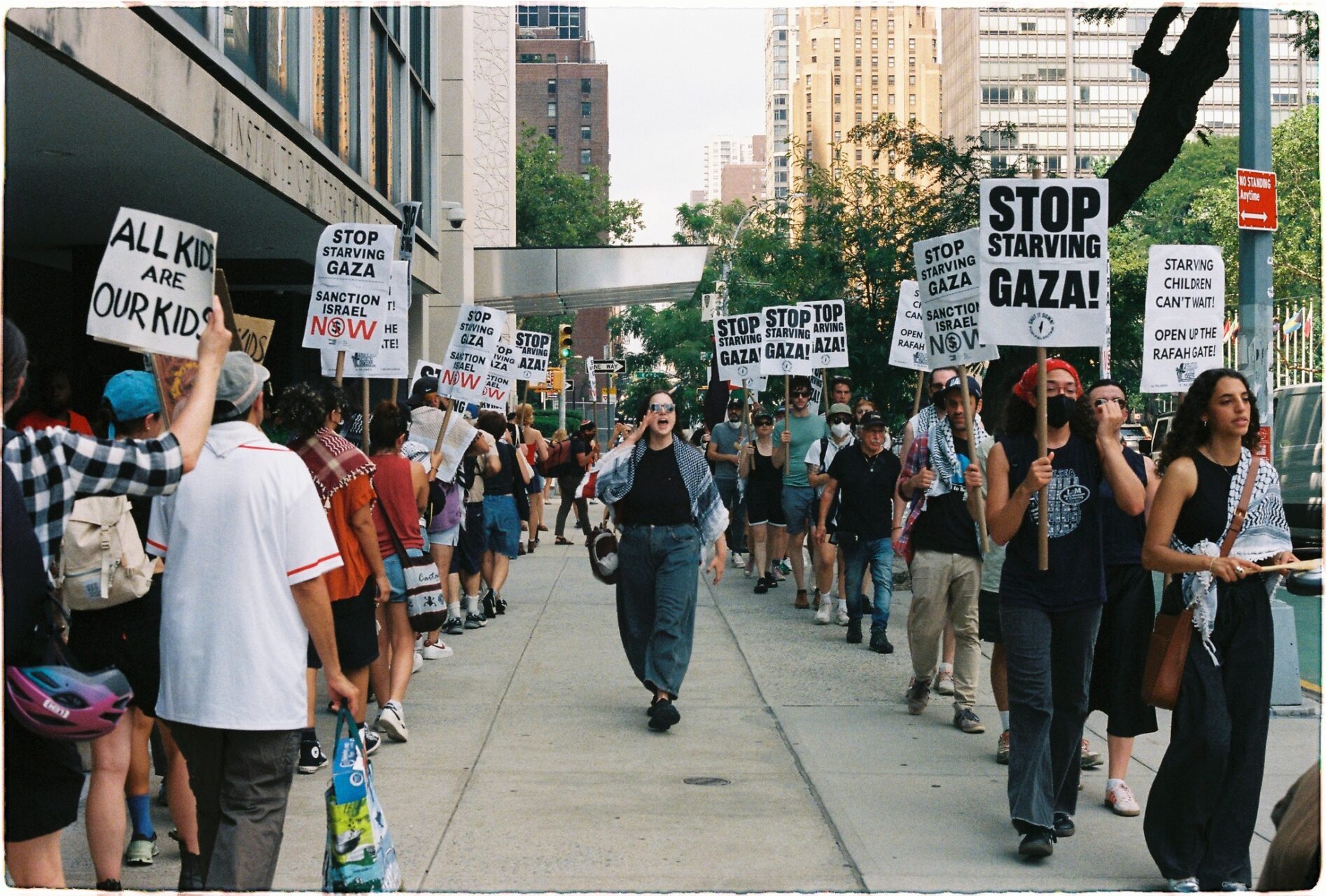 Photo © by Hai Yen Ho
Photo © by Hai Yen HoJust as I had begun the day, I ended it with a long walk, across Soho, Little Italy, Little Korea, and a few neighborhoods whose names eluded me. By the time I circled back to Chelsea, darkness had long since fallen over the restaurant roofs and in front of the furniture store on the way, with its old sign still standing in a pool of light. Arriving at my hotel on the small street sandwiched between two large avenues, I put away my things and sat quietly for a while on the single bed, looking straight out at the road ahead. The wind had died down, leaving behind a bright moonlit night filled with the noise of birds flapping their wings and the constant hum of an old air conditioner pumping hot air into the air. The silhouettes of a few passersby flickered in the moonlight. As I turned to look at those strange pedestrians, I suddenly remembered the African man I had met that morning — where was he? Had he eaten anything, or was he still walking aimlessly with an empty stomach? Was this new life what he wanted? Do his family, his parents, possibly a wife and children, and his old friends know that this was his fate? Could he have believed that some blocks away, a girl from a small country was thinking of him and worrying? Did he feel that he had paid a high price for leaving his old world? Did he gaze upwards at night and shudder to realize how terrifying were the tall buildings cutting across the cloudless sky, and how raw the light they cast across the pavement? A new world, material but not real, where poor, miserable ghosts, breathing dreams instead of air, drifted aimlessly, like the pale, ghostly figure that was creeping toward him among the shapeless buildings.
I stared into the space ahead and suddenly felt lost, as though the pasts of many nations and lives were lurking in the shadows of these high-rise buildings, just beyond my reach.


